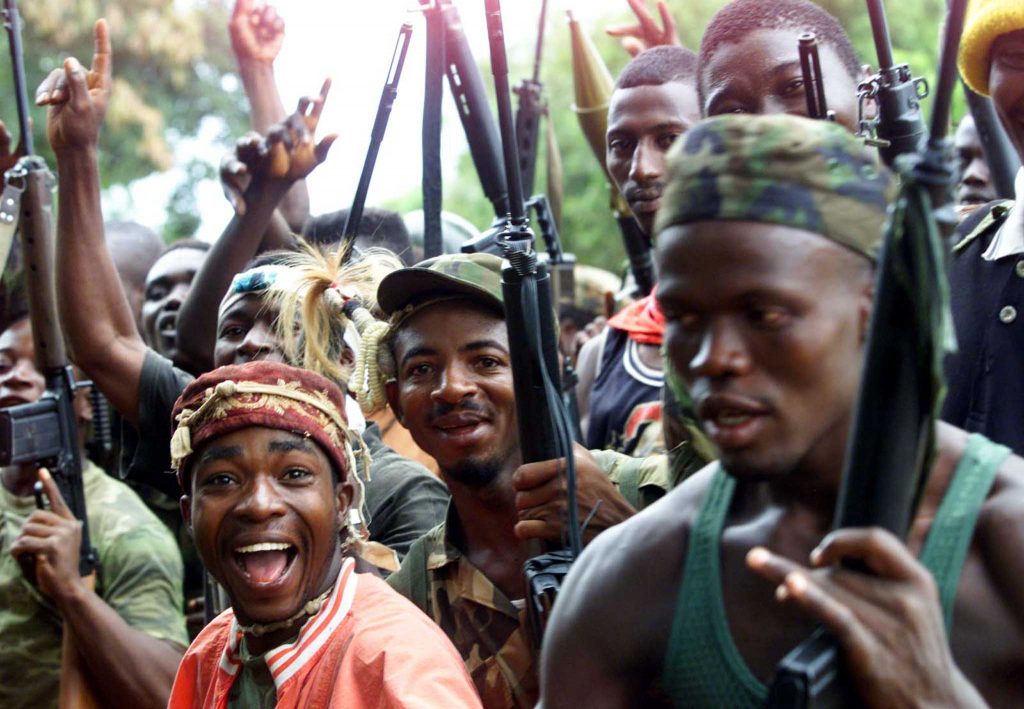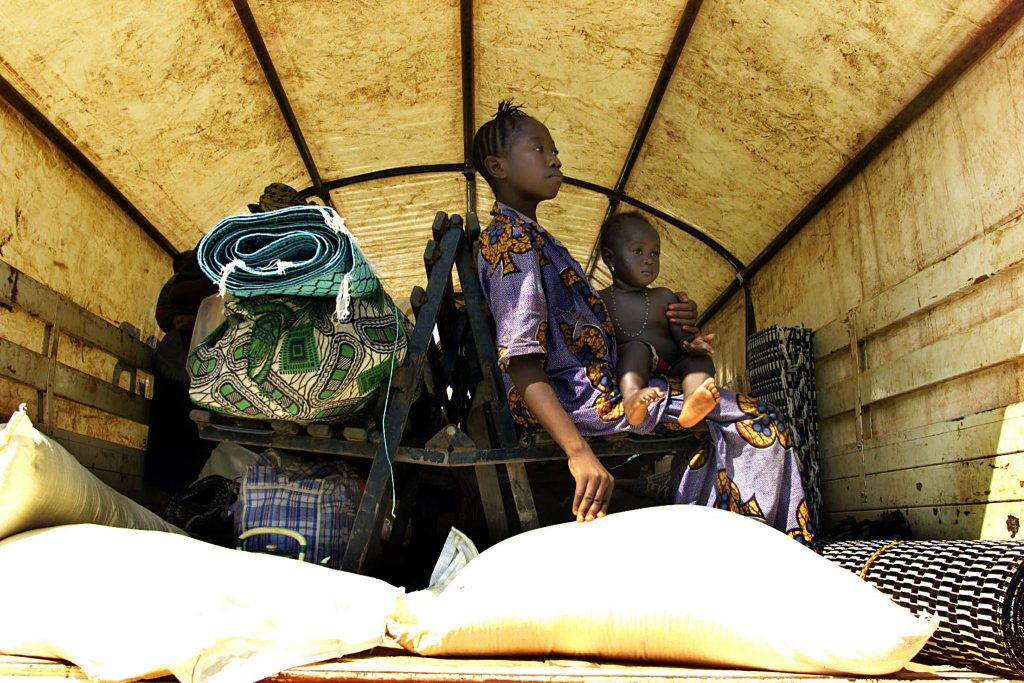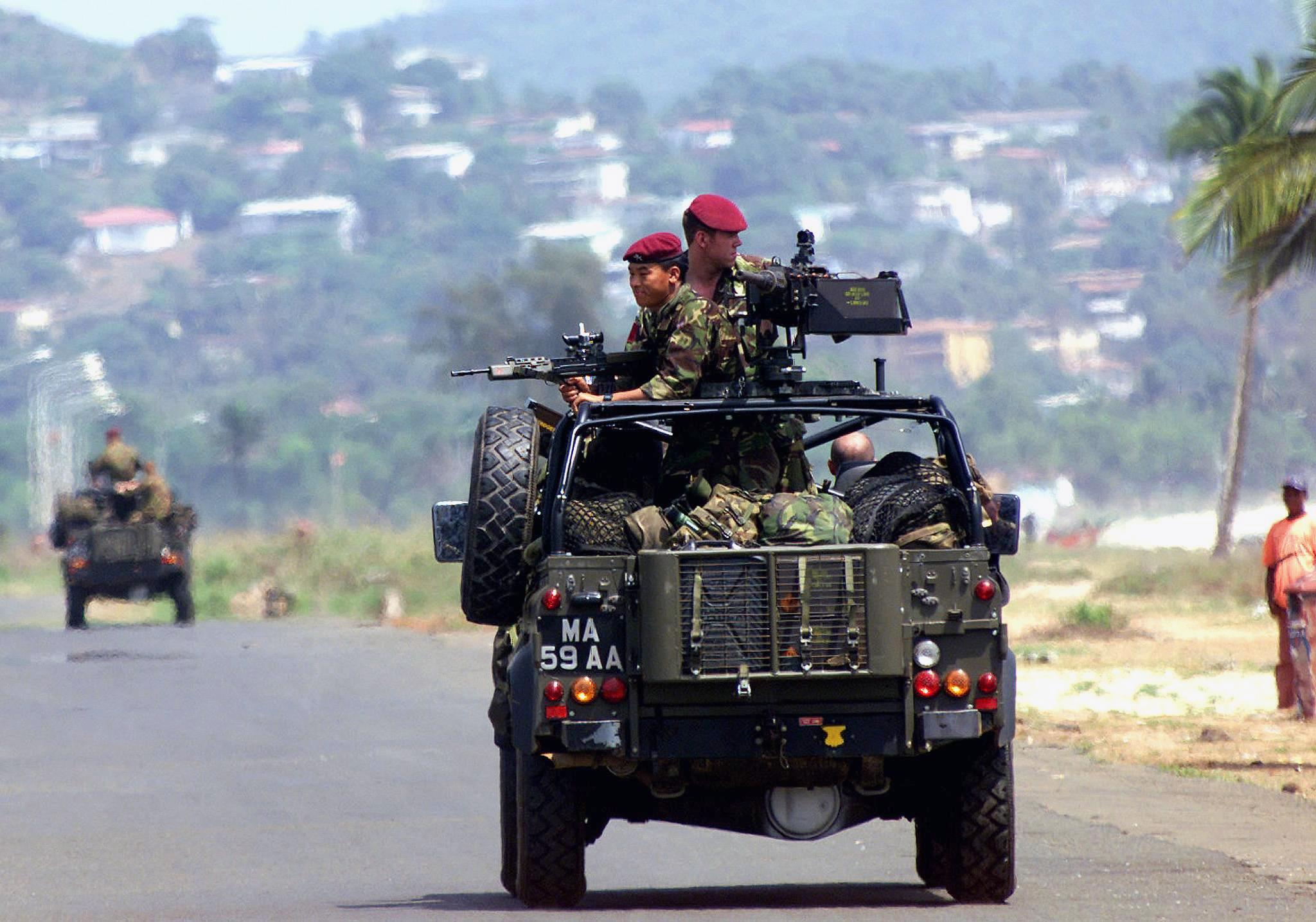On this day in 2002, the civil war in Sierra Leone, which killed more than 50,000 and displaced over 2,000,000 people, was officially declared over.
The Civil War began in 1991, when the Revolutionary United Front (RUF), a rebel group headed by Foday Sankoh, attempted to overthrow Major General Joseph Saidu Momoh, the second president of Sierra Leone.
Momoh inherited a nation in crisis. After 17 years of Siaka Stevens’ presidency, Sierra Leone’s economy lay in ruins, its government riddled with corruption, and its institutions eroded to the point of becoming a one-party state. Political unrest festered as infrastructure collapsed and the wealthy fled to neighboring countries.

Sierra Leonean fighters loyal to the government celebrate at the front line after heavy fighting between government troops and Revolutionary United Front rebels at Rogberi junction, 100 km northeast of Freetown May 23. Government troops are advancing but RUF rebels are still in control of the jungle around the area. The RUF have been accused by human rights groups with some of the worst crimes against humanity since the Rwandan genocide. yb/Photo by Yannis Behrakis REUTERS
In an attempt to settle political disputes and compromise with the rebel group, Momoh passed a constitution in early 1992 which allowed for a multiparty system, but this did little to settle the qualms of the RUF, who were still seeking reparations from Stevens’ reign.
The rebels staged a coup against Momoh in April, 1992. Diamond smuggling, an illegal trade which became commonplace during Stevens’ presidency, resumed as a means to fund the rebellion and secure arms deals with neighboring countries. The national army was successful in pushing RUF troops back towards the Liberian border, but the RUF ultimately wore down their resources.
The EU was divided on how to handle the conflict. In 1995, the RUF agreed to sign the Abidjan Peace Accord, but broke it off before the accord was put into effect, so the conflict continued with faith in the SLA gradually splintering between Sierra Leoneans.
As a result of escalating tensions within the national army, a few members coalesced and staged another coup, establishing the Armed Forces Revolutionary Council (AFRC) as the governmental body. The RUF converged with the AFRC to take over the capital city of Freetown, where Major Johnny Paul Koroma, the new head of state, prematurely declared the war over, but his announcement preceded a wave of atrocities later prosecuted as war crimes.

LOUNGI, SIERRA LEONE : A picture taken 19 December 2001 shows a Sierra Leonean woman waiting in a truck at a Red Cross camp for displaced people in Loungi, southern Sierra Leone, before leaving in a Red Cross convoy to return to her village in the north. United Nations officials have warned the international community against forgetting Sierra Leone, where a fragile peace has returned after years of civil war. EPA PHOTO AFPI/GEORGES GOBET
By 1999, the escalating crisis drew increased international attention. The UN pushed for negotiations between the RUF and President Ahmad Tejan Kabbah’s weakened government. To appease the rebels, the UN encouraged Foday Sankoh to sign the Lome Peace Accord in exchange for the vice presidency as well as ownership over the greater amount of the country’s diamond mines. Additionally, the UN sent a peacekeeping entity (United States Mission in Sierra Leone) but was largely unsuccessful as the RUF kept storming the capital.
Frustrated by the UN’s inability to enforce stability, the UK intervened with the intention of supporting what was left of the President Ahmad Tejan Kabbah’s government. British forces, through Operation Palliser, overwhelmed the RUF, whose illicit diamond revenues proved no match for the UK’s superior resources. With Freetown secured, President Kabbah formally declared the war over in 2002.
In the two decades since the end of the civil war, the country has remained largely peaceful in contrast to its neighboring counterparts such as Liberia and the Democratic Republic of Congo.



